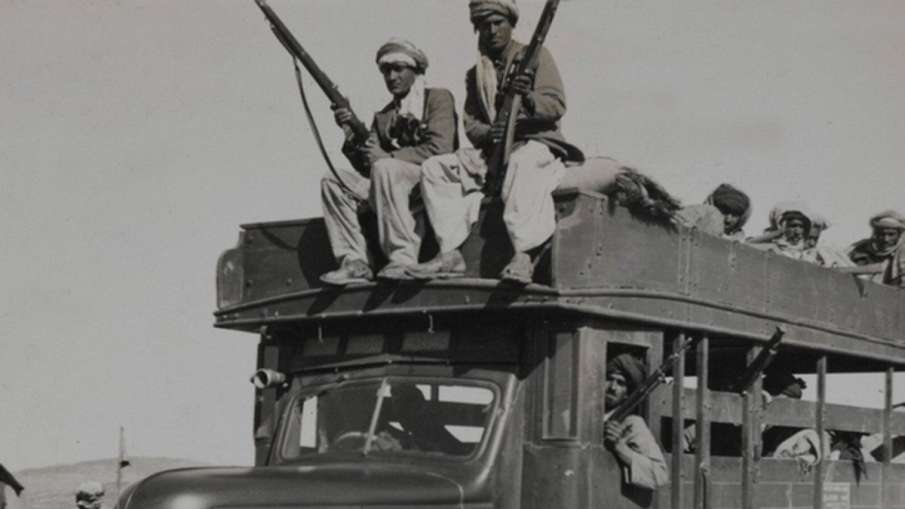When was the first battle between India and Pakistan, what were the results?
Indian soldiers landing at Srinagar Airport during the 1947–1948 war.
The first war between India and Pakistan, known as the First India-Pakistan War or the Kashmir War of 1947–48, began on 22 October 1947. This war was fought soon after the freedom of the two countries and the main reason for this was the dispute of the princely state of Jammu and Kashmir. After the partition of India and Pakistan in 1947, the princely states of British India were empowered to merge or be independent with either India or Pakistan. The Muslim-majority princely state of Jammu and Kashmir had decided to remain independent by the Hindu king of Jammu and Kashmir.
Pakistan attacked Kashmir by deception
Ignoring Hari Singh’s decision, Pakistan claimed this princely state, as it was geographically and close to population. On the other hand, Maharaja Hari Singh was giving priority to relations with India. Pakistan adopted a military strategy to capture Jammu and Kashmir. In October 1947, with the support of the Pakistani Army, Pashtun Maacia and its irregular soldiers attacked Kashmir. He quickly started moving towards Srinagar, which weakened the condition of Maharaja Hari Singh.
Maharaja merged Kashmir in India
Seeing the situation worsening, the Maharaja of Kashmir sought military assistance from India and signed a merger letter of Jammu and Kashmir on 26 October 1947, under which the princely state became a part of India. After this, the Indian Army intervened in Kashmir, and the war began. This fight was mainly fought in the region of Jammu and Kashmir. The Indian Army took immediate action to save Srinagar and on October 27, the soldiers were sent by air. Initially, the Indian Army faced lack of logistics and resources, but gradually they controlled the situation.

Pashtun fighters of various tribes leading to Kashmir.
India’s army showed amazing
During the war, both sides fought on several important fronts, including areas such as Baramulla, Uri, and Poonch. The Pakistani -backed tribes and the army initially showed fast, but the strategy and local support of the Indian Army pushed them back. By mid -1948, the Indian Army had taken most parts of the Kashmir Valley under its control. However, the war was stretched long, and both sides suffered heavy losses. During this time, the international community, especially the United Nations, intervened and demanded a ceasefire.
The Line of Control came into existence after the ceasefire
The ceasefire came into force on 1 January 1949 after the United Nations mediation. As a result, about two-thirds of Jammu and Kashmir remained under India’s control, while one-third, which is now known as Azad Kashmir and Gilgit-Baltistan, was occupied by Pakistan. The ceasefire line, later known as the Line of Control, became a separate line.
https://www.youtube.com/watch?v=Xjkly0c1rc
Kashmir became a permanent issue after the war
An important result of the war was that the Kashmir dispute became a permanent issue between India and Pakistan. The United Nations proposed a referendum, under which the people of Kashmir had to decide that they want to live with India or Pakistan. However, this referendum was never held as the two countries could not agree to it. The First India-Pakistan War deepened the tension between the two countries. This made Kashmir an issue that became a topic of discussion all over the world.
India considers Kashmir its integral part
The 1947–48 war also influenced the military and diplomatic strategies of India and Pakistan. India considered Kashmir as its integral part, while Pakistan saw it as a disputed region. In this war, both sides suffered heavy loss of life and property. This war was not only important from the military point of view, but it also shaped the national identity and foreign policy of the two countries. Even today, the Kashmir issue pricks like a thorn in India-Pakistan relations, and the legacy of this war exists as tension between the two countries.
https://www.youtube.com/watch?v=o20Vjetk4Lg
Latest india news

